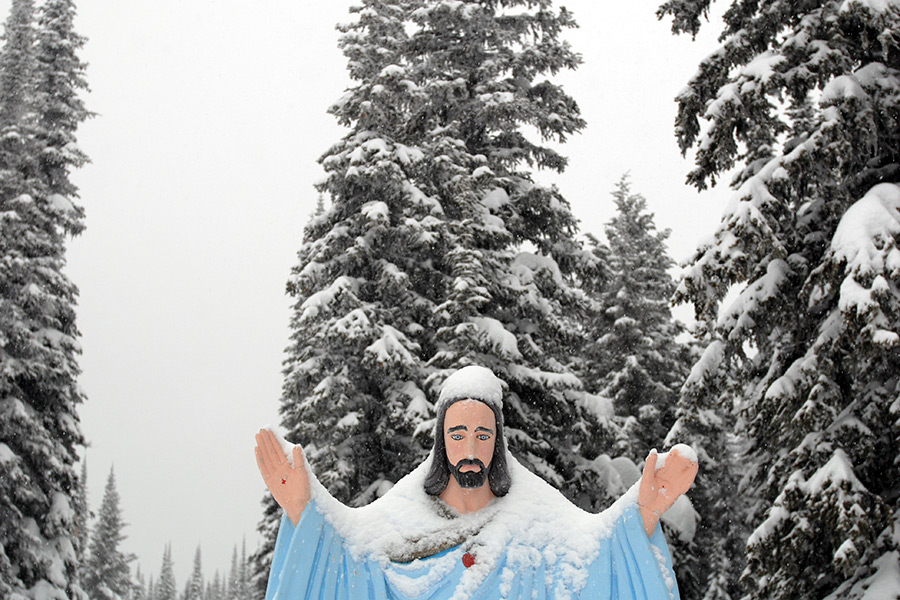The Ninth Circuit Court of Appeals ruled Monday that a six-foot-tall statue known as Big Mountain Jesus can remain on the section of Flathead National Forest at Whitefish Mountain Resort.
The panel of three judges ruled in favor of the U.S. Forest Service, stating that the statue does not violate the First Amendment.
The issue has made its way through the court system over the last several years. A lawyer representing the Freedom From Religion Foundation asked for the statue to be removed from U.S. Forest Service property, claiming it violates the constitutional prohibition on Congress making any law regarding an establishment of religion.
Lawyers at the Becket Fund for Religious Liberty defended the memorial against the Wisconsin-based group.
“Today’s decision rejects the idea that history and the First Amendment ought to be enemies,” said Eric Baxter, senior counsel of the Becket Fund for Religious Liberty. “Freedom From Religion Foundation wanted to use the First Amendment to erase Big Mountain Jesus from memory, even though it is, as the Court recognized, a crucial part of the history of Montana. Thank goodness for common sense.”
A federal district judge in 2013 said the Flathead National Forest could reissue a 10-year permit for the statue that has stood along a ski run at the Whitefish Mountain Resort since 1954. The judge, Obama appointee Dana Christensen, said no reasonable observer would conclude the Forest Service was endorsing Christianity by permitting a private party to place it on land it leases from the government.
The court ruled that the government identified secular rationales for its continued authorization of the statue, including its cultural and historical significance for veterans, Montanans, and tourists; the statue’s inclusion in the National Register of Historic Places; and the government’s intent to preserve the site “as a historic part of the resort.”
The appeals court agreed, stating the Forest Service’s permit authorization did not constitute an endorsement of religion, and that “the Establishment Clause does not compel the government to purge from the public sphere all that in any way partakes of the religious.”
The Knights of Columbus put up the statue to memorialize soldiers who died while fighting during World War II. The returning veterans who built it were inspired by the mountain shrines and statues they saw during their service in Italy.
